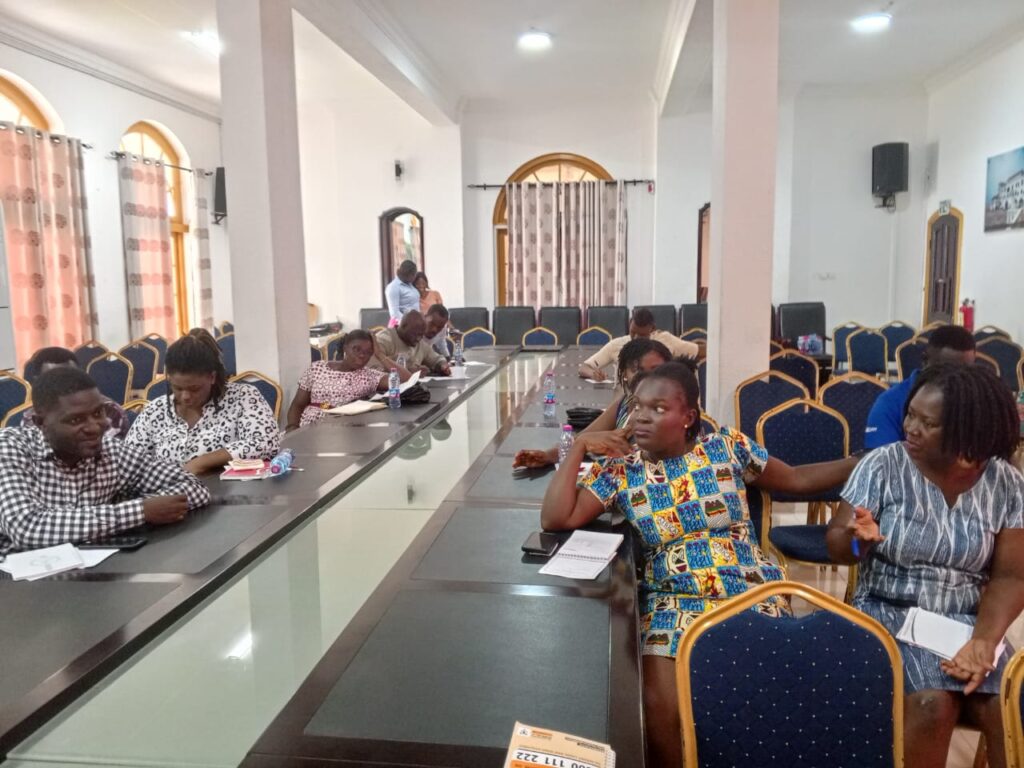
Central Region has recorded a decade of steady decline in teenage pregnancies from 13,355 in 2014 to 8,539 in 2023.
Representing a 64 per cent decline, the feat is attributed to the tremendous work by UNFPA Sub-Implementing Partners on adolescent reproductive rights, and sexual and gender-based violence.
Key among the partners are Ghana Health Service, Ghana Education Service, Department of Gender, National Youth Authority, Social Welfare and Domestic Violence and Victim Support Unit (DOVVSU).
Others are International Needs Ghana, the Plan Parenthood Association of Ghana (PPAG), traditional and religious authorities and all Non-Governmental Organizations in the space.
“It is expected that stakeholders working in the region will do more to better the future of our adolescent girls and boys and it is my wish to see a further decline in teen pregnancies in the region,” Mr Alan Paintsil, the Focal Person for the Sub-implementing Partners, advocated.
Speaking at the subcommittee’s meeting in Cape Coast, Mr Paintsil referenced the 2022 Demographic and Health Survey report, which put teenage pregnancy in the region at around 13 per cent and ranked it 12th among other regions.
The report also identified the region as one of the areas with a high incidence of sexual and gender-based violence with 35 per cent above the national average of 24 per cent.
The Regional Health Directorate also put the reduction percentage at 11.3 per cent which means the national report fell within the range.
Mr Paintsil called on stakeholders to take the lead in waging a relentless war against the increasing trend of sexual and cases of gender-based violence in the country.
He urged opinion leaders not to countenance any move to settle such cases at home but ensure that the law dealt ruthlessly with such suspects, to serve as a deterrent to others.
The 2022 Demographic and Health Survey report indicates that 19 per cent of women (compared to 16 per cent of men) believed a husband is justified in hitting or beating his wife.
Some reasons offered for justifying beatings are, if she neglects the children, goes out without telling the husband, argues with him, refuses to have sexual intercourse, or burns the food during cooking.
The report further reveals that neglecting the children is the most common justification for wife beating among women (13 per cent of women to 10 per cent of men).
For that matter, he advised, “If you are here and you are a wife or husband beater, put an end to it so that you won’t be included in this figure.”
To salvage the situation, the Sub-Implementing Committee had planned to intensify public education in seven prevalent districts in the region.
They are Cape Coast Metropolis, Komenda-Edina-Eguafo-Abrem Municipality, Foso Municipality, Upper Denkyira East (Dunkwa-On-Offin), Agona West Municipality (Agona Swedru) and Awutu Senya East (Kasoa).
Touching on HIV/AIDS, he reminded the public that the disease remained a major health threat in the country.
The campaign dubbed ‘First 90 Campaign’, forms part of the 90-90-90 global agenda set by the Joint United Nations Programme on HIV and AIDS (UNAIDS), which is the main advocate for accelerated, comprehensive and coordinated global action on the HIV and AIDS epidemic.
The SDG three calls on states to ensure that people live healthy lives and promote the well-being of people of all ages.
Target 3.3 of the goal also calls on states to ensure that by 2030, they end epidemics of AIDS, tuberculosis, malaria and neglected tropical diseases and combat hepatitis, water-borne diseases, and other communicable diseases.
Other stakeholders called for concerted efforts to sustain the gains.
